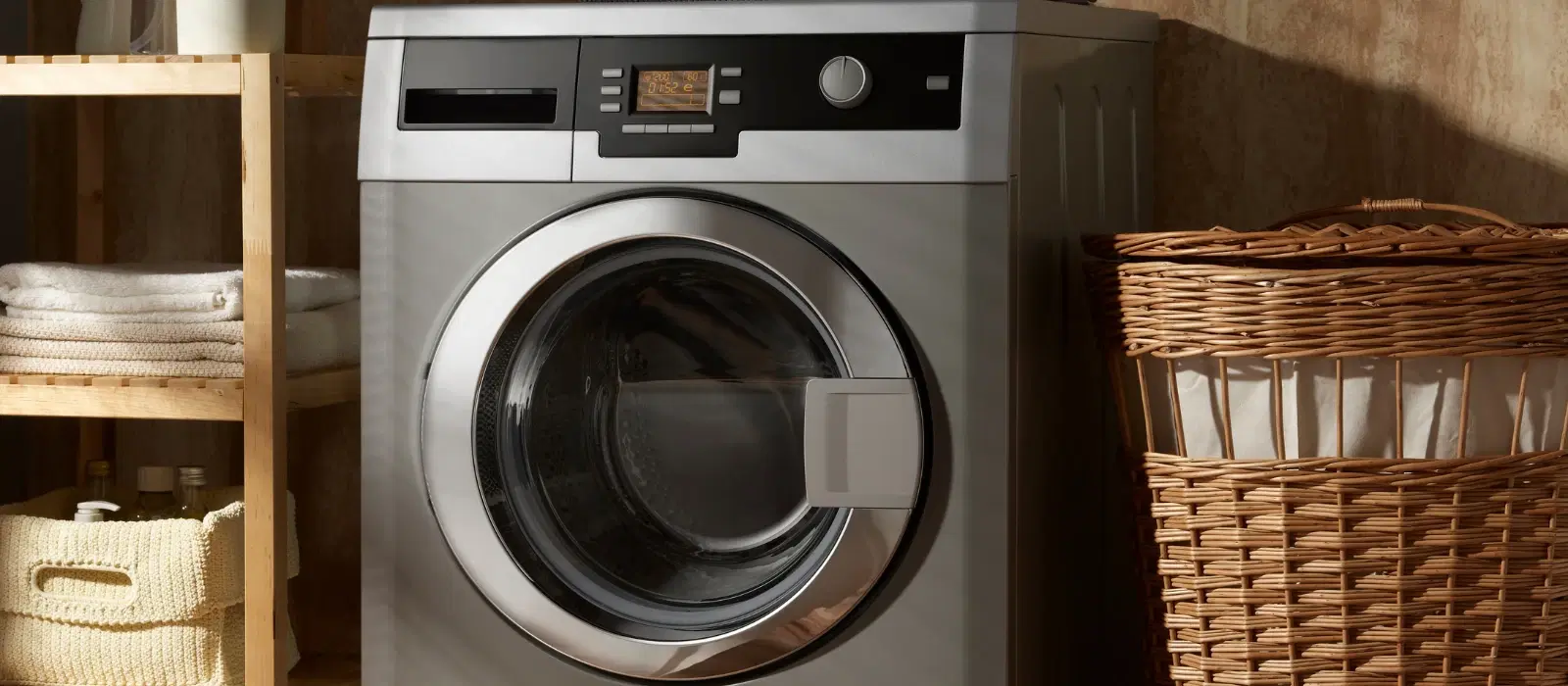
Home Appliances
•06 min read

Understanding the wattage and energy usage of your washing machine is crucial for managing household energy consumption and reducing electricity bills. Knowing how many watts is a washing machine can help you make informed decisions about usage and maintenance, leading to significant energy savings and cost efficiency. By understanding the energy consumption, you can also contribute to a more sustainable environment, reducing your carbon footprint.
Wattage refers to the amount of electrical power consumed by an appliance. In the context of washing machines, wattage indicates the power required to operate the machine during different cycles. On average, washing machines consume between 400 to 1300 watts, depending on the type and model. Here’s a breakdown:
Front Load: 500-1200 watts
Top Load: 400-1300 watts
Semi-Automatic: 300-500 watts
Fully Automatic: 500-1300 watts
Several factors can affect the wattage of a washing machine, including load size, wash cycle type, and water temperature. Larger loads and intensive cycles typically consume more power. For instance, using hot water cycles can significantly increase power consumption compared to cold water cycles. Additionally, modern washing machines with advanced features like steam cleaning or sanitizing cycles may have higher wattage requirements.
To accurately measure your washing machine’s power consumption, you can use a power meter or calculate it manually. Here’s a step-by-step guide:
Plug the power meter into the socket.
Connect your washing machine to the power meter.
Run a wash cycle and note the readings on the meter.
Use the formula: Power (W) = Voltage (V) x Current (A). Check the washing machine’s voltage and current ratings, usually found on the appliance’s label. For example, if your washing machine operates at 230V and 5A, the power consumption would be 1150W (230V x 5A).
For accurate measurements, ensure the washing machine is running under typical conditions, and avoid measuring during peak power surges. Additionally, consider measuring the power consumption during different cycles (e.g., wash, rinse, spin) to get a comprehensive understanding of the machine's energy usage.
Energy usage is measured in kilowatt-hours (kWh), which indicates the amount of energy consumed over time. To calculate your washing machine’s energy usage:

Find the wattage of your washing machine.
Multiply by the number of hours used per day.
Divide by 1000 to convert to kWh.
For example, a 1000-watt washing machine used for 2 hours a day consumes 2 kWh (1000W x 2h / 1000 = 2 kWh). Understanding your energy usage can help you identify patterns and make adjustments to reduce consumption. For instance, using shorter wash cycles or washing full loads can lead to significant energy savings.
Energy efficiency ratings, such as the BEE star ratings in India, help you compare the energy consumption of different models. Higher star ratings indicate better energy efficiency, leading to lower electricity bills. Investing in a higher-rated washing machine can result in long-term savings, both financially and environmentally.
When comparing models, consider the energy efficiency rating, wattage, and features that promote energy savings. Investing in an energy-efficient washing machine can lead to substantial long-term savings. Look for features like inverter technology, which adjusts the motor speed based on the load, and eco-friendly wash cycles that use less water and energy.
Here are some practical tips to reduce your washing machine’s electricity usage:
Use Energy-Efficient Settings: Opt for eco-friendly wash cycles and cold water settings. These settings are designed to minimize energy consumption while still providing effective cleaning.
Wash Full Loads: Avoid running the machine with small loads to maximize efficiency. Washing full loads reduces the number of cycles needed, saving both water and energy.
Regular Maintenance: Clean the filters and drum regularly to ensure optimal performance. A well-maintained washing machine operates more efficiently and has a longer lifespan.
Upgrade to Energy-Efficient Models: Consider investing in a washing machine with a high BEE star rating. These models are designed to consume less energy while delivering excellent performance.
Did You Know? Your washing machine’s energy usage can significantly impact your monthly electricity bill. Choosing energy-efficient models and following best practices can lead to substantial savings. For example, using a washing machine with inverter technology can reduce energy consumption by up to 30% compared to conventional models.
When selecting a washing machine, consider your household’s needs, energy efficiency ratings, and the machine’s features. Tata Neu offers a range of energy-efficient washing machines with expert advice and exclusive offers. With Tata Neu, you can enjoy benefits like NeuCoins rewards, express delivery, and unmatched after-sales support.
On average, washing machines use between 400 to 1300 watts, depending on the type and model.
-31f78126-d5e0-4095-a459-38b8e479087e.png&w=3840&q=75)
Look for the BEE star rating label on the machine, which indicates its energy efficiency.
Use energy-efficient settings, wash full loads, and perform regular maintenance.
Yes, different types of washing machines have varying wattages and energy consumption patterns.
It’s advisable to measure power consumption periodically, especially if you notice changes in your electricity bills.
Yes, using cold water settings can significantly reduce energy consumption as it eliminates the need to heat water.
Brands like LG, Samsung, and Bosch are known for their energy-efficient models. You can explore a wide range of these brands at Tata Neu for the best deals and expert advice.
Understanding and measuring your washing machine’s wattage and energy usage is essential for managing energy consumption and reducing costs. Explore Tata Neu for a range of energy-efficient washing machines and other home appliances, and take advantage of expert advice, exclusive offers, and seamless shopping experiences. With Tata Neu, you can make informed decisions and enjoy benefits like NeuCoins rewards, express delivery, and comprehensive after-sales support.